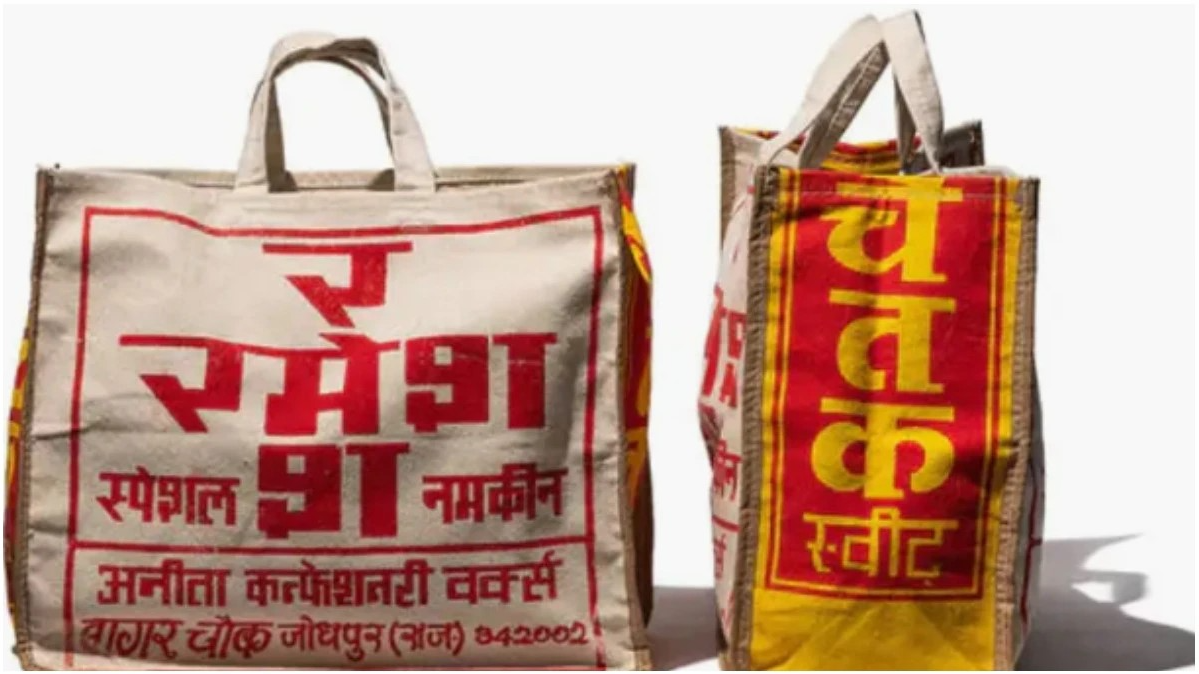

Everyday Indian 'Jhola' Bag Listed by US Luxury Retailer for ₹4,100, Sparks Online Enjoyment
The ubiquitous Indian 'jhola,' a simple and practical carryall commonly used for everyday errands and often distributed complimentary with purchases, has recently garnered unexpected attention online. American luxury retailer Nordstrom is offering the bag, rebranded as an "Indian Souvenir Bag" by Japanese company Puebco, for $48 (approximately ₹4,100), a price point that has elicited surprise and lighthearted commentary from many Indian social media users.
Everyday Indian Bag a Fashion Accessory
The bag, a familiar sight in Indian households and markets, is described by Nordstrom as a "stylish bag, adorned with unique designs, perfect for carrying your essentials while showing off your love for a beautiful country." Marketed as "a must-have for any traveller or lover of Indian culture," the product features common Hindi text typically seen on local Indian packaging, such as "Ramesh Special Namkeen" and "Chetak Sweets," now presented as aesthetic design elements. This positions an item of everyday utility in India as a distinctive fashion accessory for an international audience.
Online Reactions
The significant markup and re-contextualization of the jhola have not gone unnoticed. An Instagram video highlighting the product gained considerable traction, leading to numerous reactions. Many Indian users expressed amusement and disbelief at the high price for what they consider a very common, often free, utility item. Comments ranged from "48 dollars for this. my Indian heart is about to cry," to humorous suggestions about selling other common Indian items as high fashion, such as one user quipping, "How can I sell? I have like 10 of these at home." Another popular comment reflected, "Next it’s gonna be some 'spiced and crisped snacks'. But we know that it’s just Haldirams."
The listing of the 'jhola' as a premium "Indian Souvenir Bag" by a prominent US retailer serves as a notable instance of an everyday cultural object from one region being repositioned for a different market at a significantly elevated price. While presented as an appreciation of Indian culture, the product has primarily sparked a conversation online about value, context, and the often surprising journey of common items in a globalised marketplace.
Picture courtesy: India Today